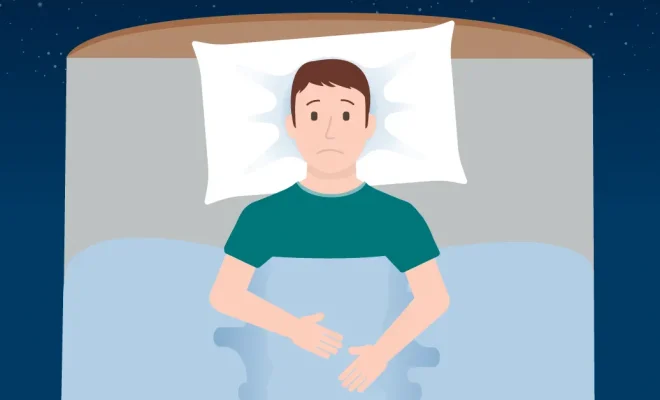No More Night Sweats: Reasons Why You Sleep Hot and 4 Ways to Stop It

Do you often find yourself waking up in the middle of the night sweating and uncomfortably hot? You’re not alone. Many people experience night sweats, and there are several reasons for this phenomenon. Understanding why you sleep hot can help you find the proper solution to alleviate this issue. Here are four common reasons why you might experience night sweats and some solutions to help you sleep cooler.
1. Your bedroom environment
One of the main reasons people sleep hot is due to their bedroom environment. A warm and stuffy room can make it difficult to maintain a comfortable body temperature while sleeping. To keep your bedroom cool, make sure to regulate the room’s temperature, invest in blackout curtains to block sunlight, and use a fan or air conditioner if necessary.
2. Your bedding materials
The materials of your bedding can also contribute to your night sweats. Synthetic bedding can trap heat, making you feel warmer throughout the night. To alleviate this issue, look for breathable materials like cotton, linen, or bamboo that can keep you cool while sleeping. You can also try moisture-wicking sheets and pillowcases that help move sweat away from your body.
3. Metabolic rate while asleep
Your metabolic rate may increase during sleep due to medical conditions or medications that affect your body’s ability to regulate temperature when at rest. If you believe your night sweats might be caused by an underlying condition or medication side effect, consult with a healthcare professional for personalized advice.
4. Hormonal fluctuations
Hormonal fluctuations, such as those experienced by women going through menopause or anyone experiencing hormonal changes, can affect body temperature regulation during sleep. If hormonal imbalances are causing your night sweats, consult with a healthcare professional about appropriate treatments or remedies.
To help stop night sweats and sleep cooler:
1. Adjust your bedroom environment: Keep the room cool, dark, and well-ventilated to maintain a comfortable temperature while sleeping.
2. Choose breathable bedding: Opt for natural, moisture-wicking fabrics like cotton, linen, or bamboo to help keep your body cool and dry.
3. Consult with a healthcare professional: If you suspect an underlying medical condition or medication side effect is causing your night sweats, seek advice from a healthcare expert.
4. Manage hormonal fluctuations: Consider appropriate treatments or remedies if hormonal imbalances are contributing to your night sweats.
By adjusting your sleep environment and addressing any underlying causes of night sweats, you can reduce discomfort and achieve a cooler, more restful night’s sleep.






